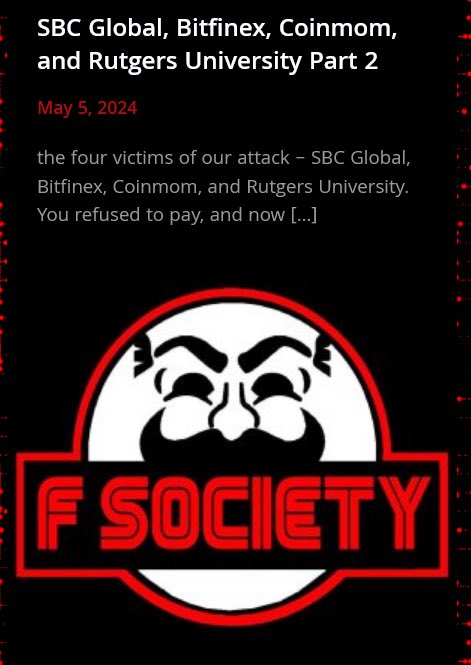Bitcoin
Congressman Tom Emmer Supports Bitcoin

Congressman Tom Emmer supported Bitcoin and Slashes Facebook’s Libra during his recent speech at US Congress on 07-17-2019.
I’m sure you’re aware bitcoin is now 10 years old and now suddenly magically Congress is responding in other words after more than a decade Congress has apparently started to care I’m glad after all these years that Congress has finally decided to pay attention to the technology that could again just like the Internet up end the way we do everything in our lives unfortunately some people want to unnecessarily restrict it or even ban it they fear change nothing has been more clear on this committee than the blind aversion to change that some of our members have constantly espoused even when it wasn’t required or even the subject of the hearing I’m amazed at how easily representatives from California are so willing to suppress the innovation occurring in their own state and as much as they would like to be a separate country the benefits those innovations could have for the United States.
I don’t want to be partisan this is not a partisan technology in fact representative bill foster a co-chair the blockchain caucus like myself has been a longtime champion and advocate for these innovations it has never been a cornerstone of my grandfather’s Democrat Party to oppose innovation chairwoman waters was in fact correct when she began this hearing that merely learning more about an understanding Libra does not have to include opposing it.
I hope that will be the same approach to understanding the breadth and depth of cryptocurrency which Libra does not represent but thankfully thankfully amplifies our discussion of that topic unfortunately mr. Marcus you and your company have decided to approach this undertaking with as equal a level of ignorance and misunderstanding as those who wish to quell any new developments in cryptocurrency I’m afraid you have failed to realize that there is much to do in Washington in terms of educating both members of Congress and regulators on the benefits of this technology I hope someone whose opinion you value conveys to you how wrong you’ve been operating people have concerns with the amount of data you have on them and now you want to be there money to I hope members of this committee investigate the fact that quote the people already have options separate from your central control my colleagues are incredibly fearful of the money laundering and criminal activity and crypto currencies but the dollar in all Fiat backed currencies have been proven to be the largest means of illicit behavior and money laundering this does not mean we need to suppress individual freedom individuals insistent on the exclusion of middlemen and the freedom of the individual will continue to create open networks separate from central control unfortunately Libre is not designed to minimize middlemen it in fact relies on them at the end of this day Libre presents an incredible opportunity to define what it is not it presents an incredible opportunity for everyone on this committee to learn more about actual crypto currencies the committee has already sent out a press release that this is only our first step in regulation of oversight of Libre a lot has been said about the concern that the payment systems are unregulated however payment systems like the one you propose are already subject to regulation by a number of agencies.
I think it’s important that my colleagues have a full understanding of the law as it currently exists so that we may make better decisions here Treasury as demonstrated by Secretary of minuchin on Monday regulates payment systems for anti-money laundering compliance the FTC regulates them for fraud each state regulates them for consumer protection among other things New York has its own specific regime and so forth this regulatory landscape applies to payment systems like Libre and is different and distinct from laws that may or may not apply to typical social media platforms when this hearing was announced I was optimistic that this was finally at the time a major company wanted to be involved with this revolution and that the majority wanted to actually think and learn these new innovations it appears however they have decided to entrench themselves in the fear of the unknown and the fear of change and your company has done nothing to allay these fears as you move forward acknowledging that the bill to ban your actions has no constitutional basis let alone a basis in logic and that no one is willing to actually put their name on this proposal to ban private innovation will you work with me and invest educational efforts to show these members of Congress that we should work to better understand the innovations underlying cryptocurrency rather than doing their best to put their head in the sand and ignore change.
Bitcoin
Telecom Giant Vodafone Bringing Crypto to the Masses Via SIM Cards

The major telecom company Vodafone has unveiled an ambitious plan to integrate cryptocurrency wallets directly into the SIM cards used by mobile phones on its network. This cutting-edge move aims to make blockchain technology and crypto easily accessible to millions of smartphone users worldwide.
What’s Happening?
Vodafone, one of the largest mobile operators based in the UK, intends to combine crypto wallets with the subscriber identity module (SIM) cards inside phones. SIM cards are little chips that allow mobile devices to connect to a carrier’s network.
By embedding a crypto wallet into these ubiquitous SIM cards, Vodafone wants to introduce blockchain and virtual currency technology to the masses through the smartphones we all use daily.
The Bigger Blockchain Picture
This crypto SIM integration is part of Vodafone’s bigger blockchain strategy. The company has developed its own “PairPoint Digital Asset Broker” platform to enable secure digital identities and transactions across different blockchains.
Vodafone’s blockchain lead David Palmer emphasized in an interview that mobile phones are the main way billions access digital services and commerce. So partnering blockchain with SIM card tech is crucial for widespread adoption.
By 2023, there will be over 8 billion mobile phones in use globally. And estimates suggest crypto wallets on smartphones could reach 5.6 billion by 2030 as digital money goes mainstream.
Financial Restructuring
The crypto wallet announcement comes as Vodafone seeks to restructure its finances and raise billions in new funds through debt offerings and loans over the next couple years.
The company plans to take on $2.9 billion in total debt, including $1.8 billion in direct loans. Some of this financial overhaul relates to issues at Vodafone’s Indian subsidiary Vodafone Idea Ltd.
While navigating these monetary hurdles, Vodafone still sees major opportunities in emerging technologies like blockchain and aims to be an innovator helping drive mainstream crypto adoption through the SIM card strategy.
Bitcoin
No Evidence of Hack, Says Bitfinex CTO Amid Ransomware Gang’s Allegations

In the world of cybersecurity, claims of data breaches can cause significant concern and speculation. Recently, a ransomware group named FSOCIETY claimed to have successfully hacked several organizations, including the cryptocurrency exchange Bitfinex. However, Bitfinex’s Chief Technology Officer (CTO), Paolo Ardoino, has dismissed these rumors, stating that a thorough analysis of their systems revealed no evidence of a breach.
According to Ardoino, who is also the CEO of Tether, less than 25% of the email addresses allegedly stolen from Bitfinex’s servers match legitimate users. This casts doubt on the validity of FSOCIETY’s claims regarding the supposed hack.
The ransomware group, styled after the fictional hacking group from the TV show “Mr. Robot,” claimed to have breached several victims, including Rutgers University, consulting firm SBC Global, and a cryptocurrency exchange they referred to as “Coinmoma,” which is likely a misspelling of Coinmama.
Ardoino expressed skepticism about the group’s claims, stating that if they had indeed hacked Bitfinex, they would have demanded a ransom through the exchange’s bug bounty program, customer support channels, emails, or social media accounts. However, Bitfinex received no such requests from FSOCIETY.
Furthermore, Ardoino shared a message from a security researcher suggesting that the real motivation behind the alleged hacks might be to promote FSOCIETY’s ransomware tools, which they reportedly sell access to in exchange for a subscription fee and a commission on stolen profits. Ardoino questioned the group’s need to sell their tools for $299 if they had truly hacked a major exchange like Bitfinex.
It’s worth noting that Bitfinex has previously fallen victim to a significant hack in 2016, resulting in the theft of a substantial amount of Bitcoin. Two individuals, including crypto rapper ‘Razzlekhan,’ pleaded guilty to money laundering charges in connection with that incident.

While the claims made by FSOCIETY have yet to be verified by the alleged victims, Bitfinex’s CTO remains firm in his stance that no breach has occurred. As cybersecurity threats continue to evolve, it is crucial for organizations to remain vigilant and take proactive measures to protect their systems and users’ data.
Bitcoin
Indian Police Seize 268 Bitcoins Worth $17 Million in Crypto Bust

Indian authorities have seized a large sum of bitcoins from a resident of Haldwani, a city in the northern Indian state of Uttarakhand. The seized cryptocurrency stash of 268 bitcoins is worth around $17 million at current prices.
The Enforcement Directorate (ED), a law enforcement agency that investigates financial crimes, carried out the bitcoin seizure. They arrested Parvinder Singh from his home in Haldwani after a raid prompted by information from US authorities.
Singh is allegedly part of an international drug trafficking syndicate called “The Singh Organization.” The criminal group used dark web marketplaces like Silk Road to sell drugs in the US, UK and other European countries.
To hide their illegal activities, the syndicate laundered the drùg money by converting it into bitcoins and other cryptocurrencies. ED officials said Singh and his associates received around 8,488 bitcoins over the years from their drùg sales on the dark web.
The bitcoin seizure was a rare collaboration between Indian and US law enforcement agencies. American officials have been investigating Singh and his accomplice Banmeet Singh for their roles in the international drùg cartel.
Cryptocurrencies like bitcoin are popular among criminals due to the anonymity they provide. However, this case shows authorities are getting better at tracing illegal crypto transactions and bringing the perpetrators to justice.
The investigation is still ongoing, and more arrests and seizures are expected as officials unravel the entire money laundering operation of The Singh Organization.
-

 Altcoins5 years ago
Altcoins5 years agoProject Review: Pi Network, a New Scam Project in Town
-

 Bitcoin4 years ago
Bitcoin4 years agoBitcoin Worth $1.2M Seized From Arrested Indian Hacker
-

 Altcoins6 years ago
Altcoins6 years agoReview: Play Arcade Games Inside ARK Wallet And Win Some Free Cryptocurrency
-

 Blockchain6 years ago
Blockchain6 years agoA Full Review: Utopia A New Decentralized P2P Blockchain
-

 Bitcoin6 years ago
Bitcoin6 years agoAnother Exit Scam: NovaChain Shuts Down
-

 Exchanges5 years ago
Exchanges5 years agoCrex24 Will Require KYC Verification
-

 Bitcoin6 years ago
Bitcoin6 years agoJohn McAfee Has Gone Missing
-

 Blockchain5 years ago
Blockchain5 years agoProject Review: Dmail Decentralized Blockchain Email


















